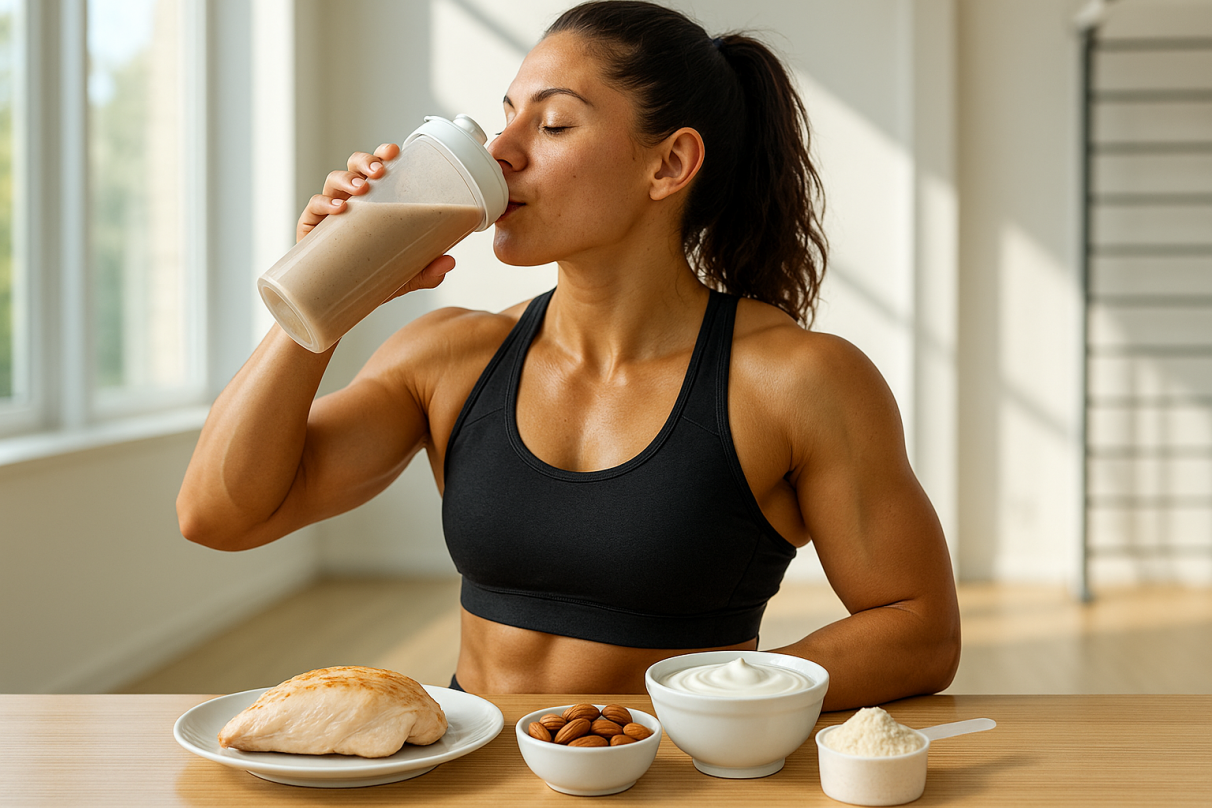Micronutrients & Hydration: Little Things that Make a Big Difference

Now that we’ve covered the big macros, let’s talk about the “micro” side of nutrition – micronutrients (vitamins and minerals) – and the absolute importance of hydration. These often get less hype, but they’re vital to feeling and performing your best.
Mighty Micronutrients ??
Vitamins and minerals don’t provide energy directly like carbs or fat, but they help unlock and utilize that energy, aid in recovery, and keep all your body systems running smoothly. Here are a few key ones for active women:
Iron: This mineral carries oxygen in your blood to your muscles. Low iron = low energy and endurance. It’s especially crucial for women because we lose iron each month with menstruation. In fact, iron deficiency is the most common nutritional deficiency in the U.S., and females are a (Answering Common Questions From Female Athletes - stack)sk. If you often feel tired or get winded easily, it could be worth checking your iron levels. Get iron from red meat, poultry, seafood, spinach, lentils, and fortified cereals. Pair plant sources of iron with vitamin C (like adding bell peppers to your spinach salad) to boost absorption. If you’re diagnosed with low iron, a supplement may be needed – but consult a doctor/dietitian for the right dosage, because too much iron is harmful.
Calcium: We all know calcium builds strong bones – crucial for women to prevent osteoporosis later in life – but it also plays a role in muscle contractions. Dairy products (milk, yogurt, cheese) are top sources; if you’re lactose intolerant or vegan, look for fortified plant milks or eat tofu, almonds, and leafy greens like kale. Getting ~1000 mg of calcium a day (the equivalent of about three servings of dairy or fortified alternative) is a common recommendation for adult women.
Vitamin D: This vitamin helps you absorb calcium and supports immune function and mood. Our skin makes vitamin D from sunlight, but in northern climates (like Estonia, Latvia, Lithuania, Finland), the sun isn’t strong enough in winter to do the job. No wonder studies in Estonia found that after a long dark winter, virtually all young Estonian men had a vitamin (Estonian study: we need more vitamin D)y – and it likely affects women too. Vitamin D deficiency can lead to fatigue, weaker bones, and poorer performance. You can get some D from fatty fish (salmon, sardines), egg yolks, and fortified foods, but many people need a supplement to reach optimal levels. It’s common in Nordic countries to take a D supplement, especially from fall to spring. If you haven’t had your levels checked and you live up north, it’s worth considering a vitamin D supplement (the generally recommended dose is around 1000–2000 IU daily, but some individuals may need more – again, a blood test can guide you).
B-Vitamins: This is a group (B1, B2, B6, B12, etc.) that helps convert food into energy. If you’re eating a varied diet, you likely get enough B vitamins, but vegans need to watch B12 (found mostly in animal foods). Leafy greens, whole grains, meats, dairy, and eggs provide various B’s. They’re water-soluble, so you need them regularly (and excess gets peed out, not stored). B6 and B12 in particular are often touted for energy; most of the time a balanced diet plus a multivitamin covers these.
Antioxidants (Vitamins C & E, etc.): These help combat oxidative stress from exercise (yes, intense exercise creates free radicals in the body – but don’t worry, it’s part of the adaptation process). Eating plenty of fruits and vegetables, of all colors, loads you up with antioxidants. Vitamin C (citrus fruits, berries, peppers) also supports your immune system – important because overtraining or poor nutrition can sometimes weaken immunity. Vitamin E (nuts, seeds, olive oil) supports recovery as well.
Magnesium & Potassium: These electrolytes are lost in sweat and are important for muscle function and preventing cramps. Bananas are famous for potassium (hence why you see tennis players munching them); other sources include potatoes, oranges, and coconut water. Magnesium is found in nuts, whole grains, dark chocolate, and green leafy veggies. If you get muscle cramps often, look at your magnesium, potassium, and calcium intake – you might need to boost them.
Essentially, eat the rainbow – lots of different colored fruits and veggies – and include nuts, seeds, and whole grains to cover your micronutrient bases. A daily multivitamin can be a good safety net, especially for beginners who are still mastering their diet. It’s not a license to eat poorly, but it can plug tiny gaps. For example, a multivitamin from a reputable brand like BioNational or Holland & Barrett (which the site may carry) could ensure you’re getting baseline amounts of micronutrients.











Comments : 0